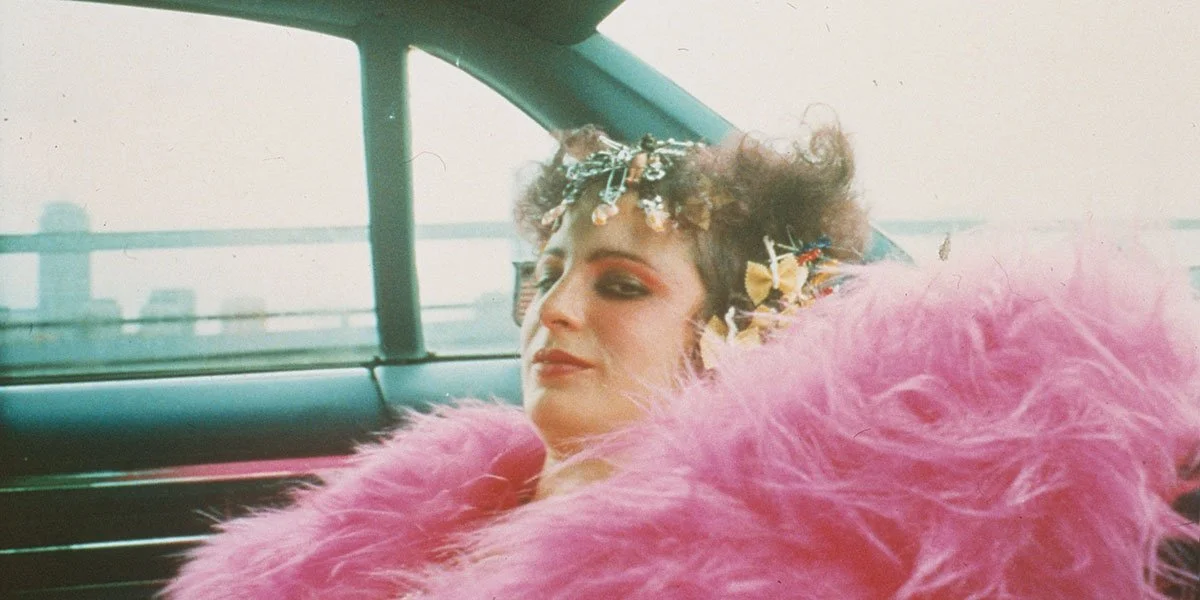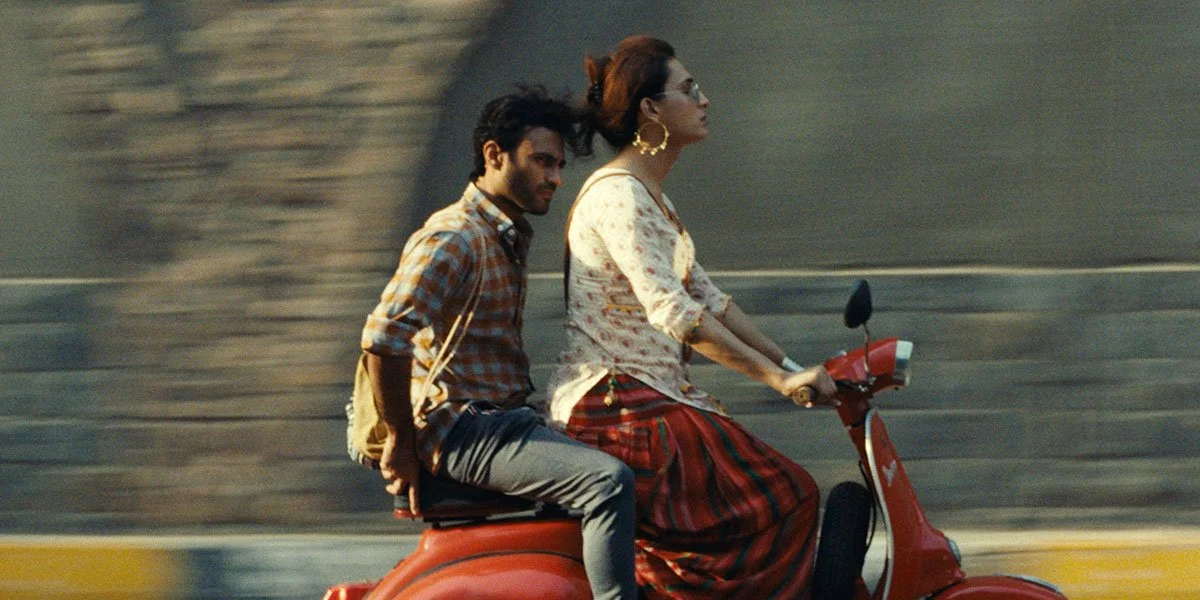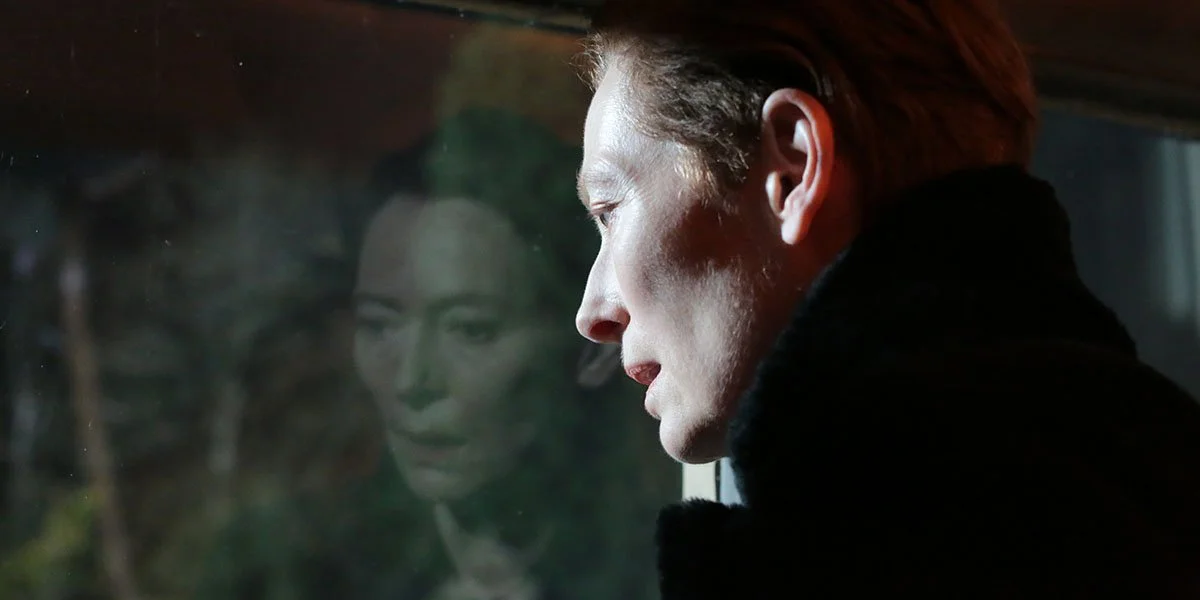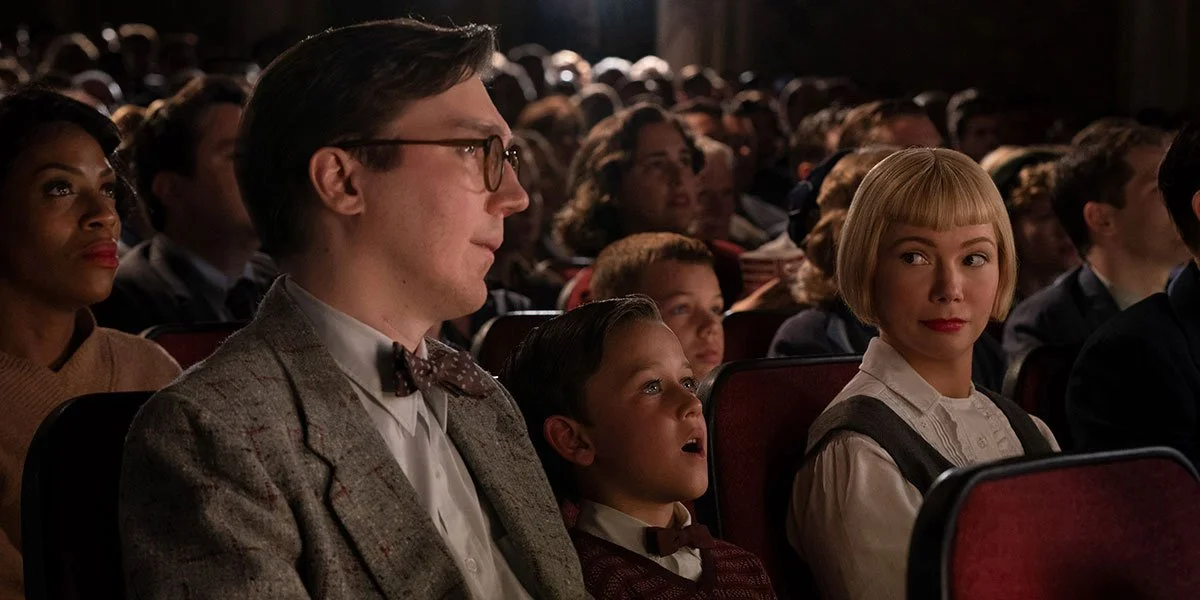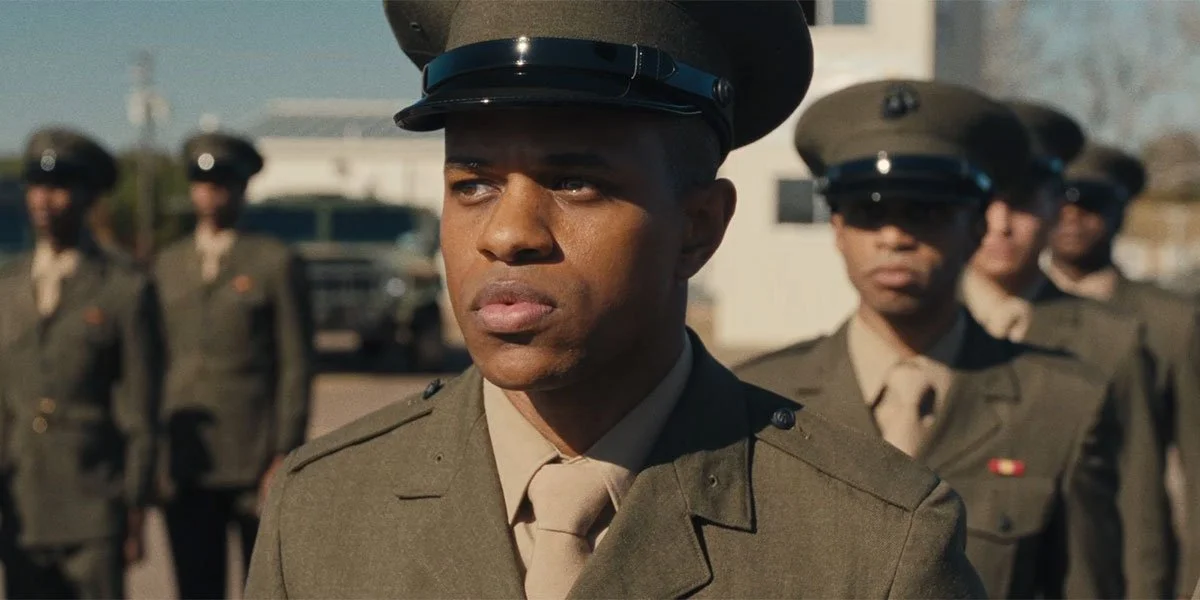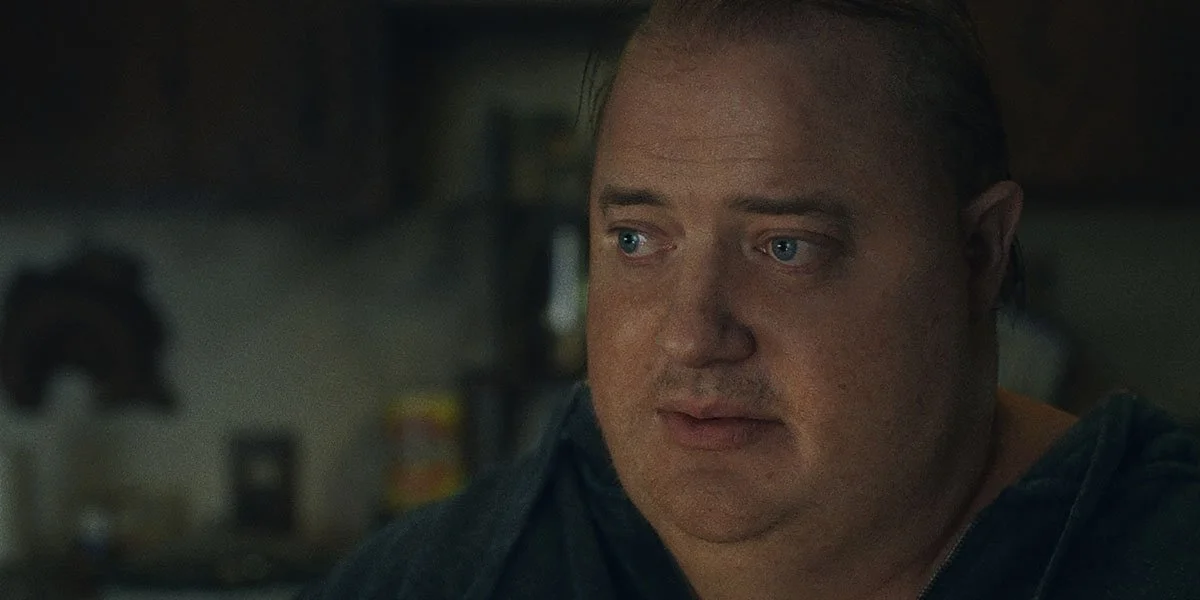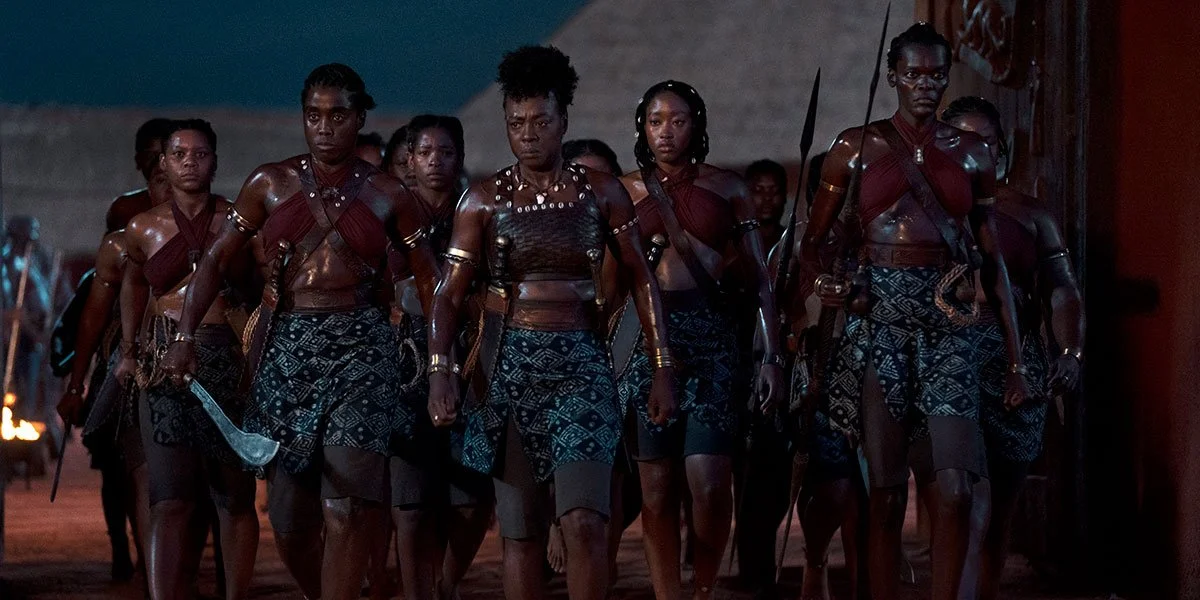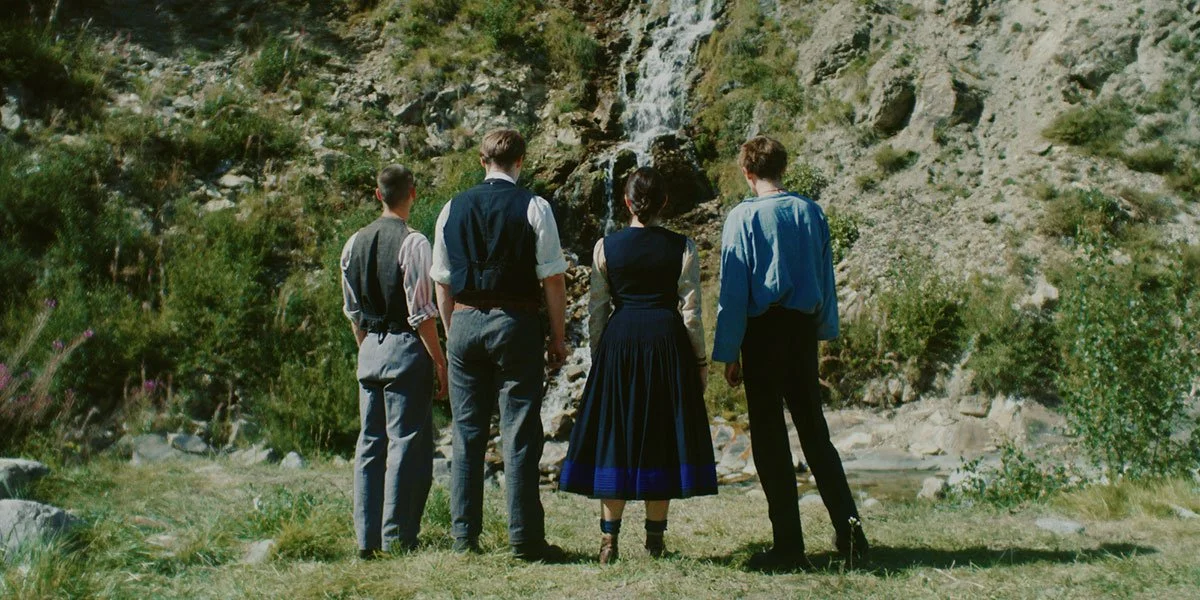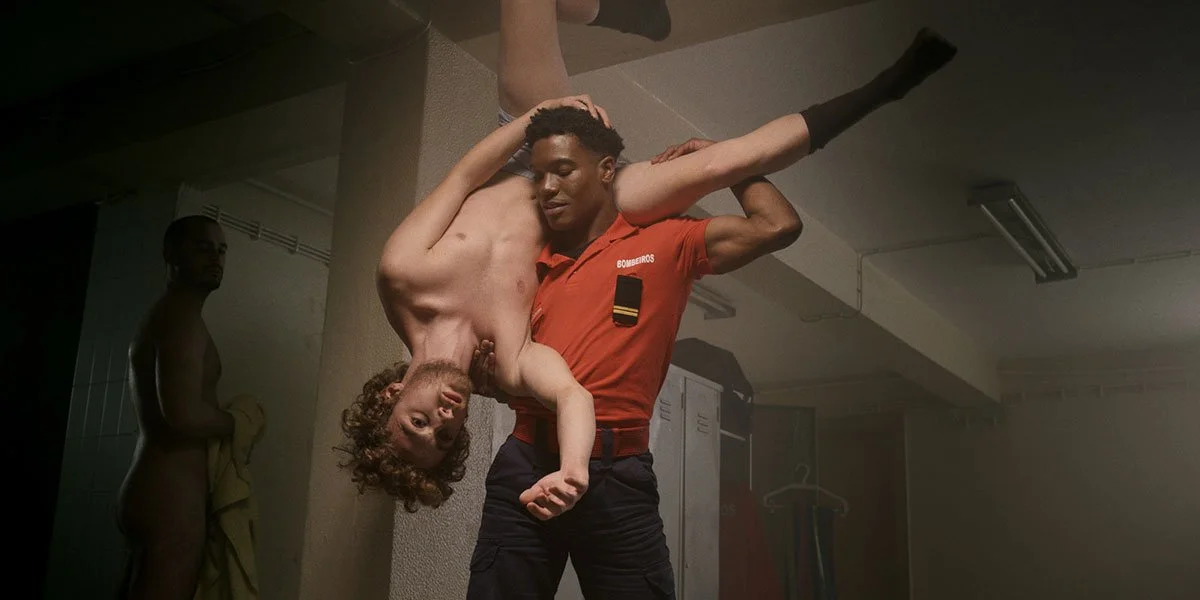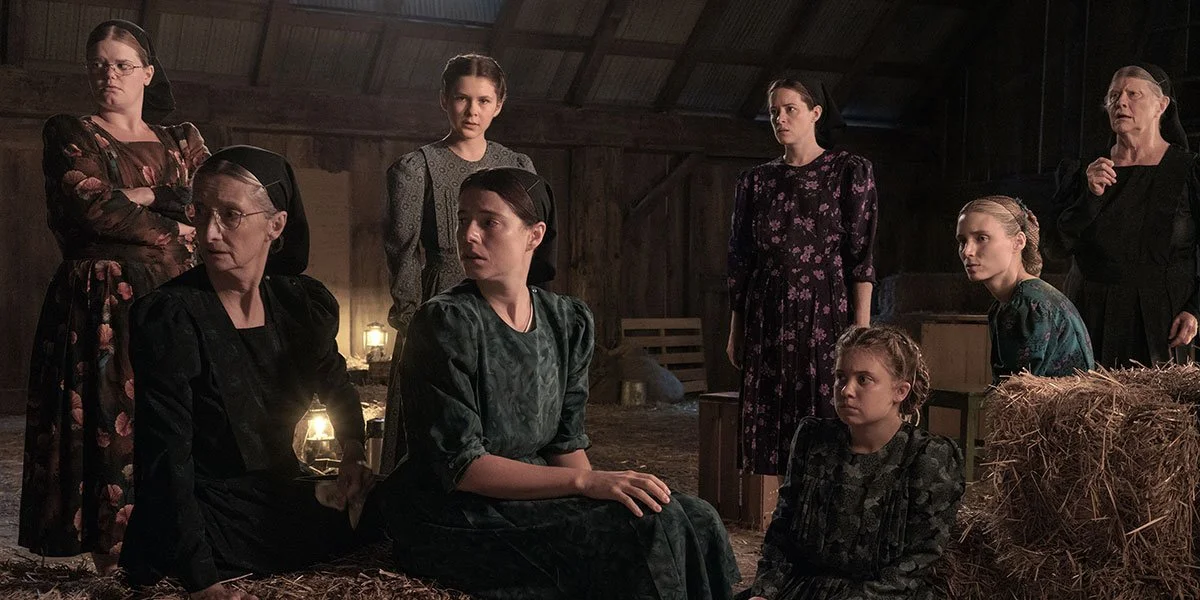Hot Takes: TIFF 2022
First reactions to some of the films that I screened at this year’s Toronto International Film Festival.
'All the Beauty and the Bloodshed'
Courtesy of TIFF.
Awarded the Golden Lion at this year's Venice Film Festival, Laura Poitras's latest documentary, All the Beauty and the Bloodshed, serves as a kaleidoscopic portrait of the photographer and activist Nan Goldin that brilliantly unfolds to attack many crises that plague American society.
Effortlessly moving through time to capture the tragedy and magnificence of Goldin's life, All the Beauty and the Bloodshed simultaneously showcases Goldin's radical photography while also shining a light on her organization P.A.I.N (Prescription Addiction Intervention Now). P.A.I.N aims to uncover the crimes of the mega-wealthy Sackler family, who put Oxycontin on the market through their former company, Purdue Pharma, dramatically inflating the opioid crisis. All the Beauty and the Bloodshed works its on-screen magic in so many forms - spotlighting marginalized societies throughout recent American history that have been tossed aside and nearly ruined by Capitalist greed and political agendas. Absolutely captivating from start to finish, All the Beauty and the Bloodshed is a fantastic achievement that will surely gain more buzz as it continues to play the festival circuit and make its way into awards season.
‘Empire of Light’
Although I am not a massive fan of the entire filmography of British filmmaker Sam Mendes, Empire of Light was one of the movies I was most looking forward to catching up with at TIFF. Unfortunately, Mendes let me down with his latest work, which I found visually stunning but narratively unsound. Early reports on Empire of Light described the film as a "love letter to cinema," but I saw it as an acting showcase for the main characters portrayed by Olivia Colman and Michael Ward. Set against the fascinating backdrop of an early 1980s Thatcher-era English coastal town, Mendes largely neglects that era of feeling, making loose, largely empty connections to the film's narrative.
When Empire of Light hits theaters, it will indeed be hailed for its amazing crafts - led by Roger Deakin's sumptuous cinematography and Trent Reznor and Atticus Ross's masterful score. And, of course, awards darling Colman will be universally hailed for her portrayal of a middle-aged, mentally ill movie theater manager. However, Mendes is unlikely to get the rapturous reception he received for his last film, 2019's 1917.
'Holy Spider'
Courtesy of TIFF.
After the insanity of Iranian filmmaker Ali Abbasi's last film, Border in 2018, I have been highly anticipating his latest work, Holy Spider, since it premiered in competition at Cannes, where the film's lead actress Zar Amir Ebrahimi was awarded the prize for Best Actress. Set in post-9/11 Mashhad, a holy city of Iran, Holy Spider found inspiration in the real-life serial killer Saeed Hanaei, who went on a serial-killing spree that targeted female sex workers in an attempt to "cleanse the holy city." Ebrahimi's character is a journalist from Tehran who seeks to uncover the killer's identity, facing much misogyny and little aid in the process. Holy Spider plays out almost like a 1970s neo-noir crime thriller, utilizing a dark, textural visual language and a pulsing score that aids in building the tension around the horrific crimes portrayed on screen. A far cry from the fantastical elements of Border, Abbasi's latest effort is rich in its confrontation of moral and social standards that still affect much of the Middle East today.
'Joyland'
Courtesy of TIFF.
One of my favorite movies from this year's TIFF was Joyland, directed by Pakistani filmmaker Saim Sadiq in his feature film debut. Exuberant and liberating, Joyland takes place in the city of Lahore, where a young man named Haider struggles between traditional familial expectations and his own desire after he takes a job working as a background dancer for an enigmatic transgender performer called Biba.
Against the backdrop of a conservative culture, Joyland does a fantastic job of poking holes in the issues of traditional expectations of gender and sexuality while also platforming the tight-knit bond in Haider's family and culture. In addition, the film does well in avoiding serious allegiances with its characters, instead choosing to highlight the complications of each of their real-world decisions. As Haider opens up to his passions and his affection for Biba, he allows himself to become empowered by Biba's unapologetic existence. Joyland moves fluidly between the emotional highs and lows of Haider's life and contains one of the best final scenes from any film in my recent memory. Joyland was awarded the Queer Palm and the Jury Prize in the Un Certain Regard section at Cannes earlier this year. Hopefully, after its platform at TIFF, the film will continue to affect audiences in the way it left an impression on me.
'Maya and the Wave'
Courtesy of TIFF.
Directed by Stephanie Johnes, Maya and the Wave revolves around the Brazilian big wave surfer Maya Gabeira during a tumultuous period of her career. Celebrated for riding the largest wave ever for a woman (a terrifying SIXTY-EIGHT feet tall), Gabeira earned a spot in the Guinness Book of World Records. However, on the way to this insane accomplishment, Gabeira faced severe injuries, criticism from her male associates in the sport, and mental strain that led to much uncertainty for her career. Uplifting for viewers and visually stunning in its capturing of the world's most giant waves, Maya and the Wave is a sports documentary that should significantly impact audiences everywhere.
'Return to Seoul'
Courtesy of TIFF.
French-Cambodian filmmaker Day Chou's sophomore feature Return to Seoul premiered earlier this year at Cannes, but I finally caught up with the film at TIFF, where it was part of the festival's Discovery section. Return to Seoul is a portrait of a twenty-something-year-old woman named Freddie, whose vacation plans take a turn and find her randomly in Seoul. Born in South Korea and put up for adoption, Freddie was raised in France and knew little about her cultural heritage or even the identities of her biological parents. After being spurred by a new friend to reach out to the adoption agency that handled her case, Freddie attempts to connect with her birth parents, taking her on an emotionally moving journey she never expected.
Return to Seoul is an electric, propulsive film that explores the collision of cultures and deep familial complications felt by its protagonist. As Freddie, Ji-Min Park delivers an incredibly nuanced performance as a darlingly spirited young woman finding her place in the world. Ambitiously moving through the years and transitions of Freddie's life, Return to Seoul serves up a hypnotically honest portrayal of a young person in flux, which many audiences will identify with upon the film's release. Sony Pictures Classics will be handling the North American distribution for the film, which is still undated for a theatrical release.
'The Banshees of Inisherin'
Admittedly, director Martin McDonagh was on my "shit list" after 2017's Three Billboards Outside Ebbing, Missouri, which I found to be highly problematic in its depictions of rural America. However, I found McDonagh's latest work, The Banshees of Inisherin, to be a viciously hilarious black comedy with fantastic acting performances and an expertly tight screenplay. Starring Colin Farrell, Brendan Gleeson, and Kerry Condon, the Banshees concentrates on the sudden fallout of the friendship between two men on a remote Irish island in the 1920s.
Farrell takes center stage as Pádraic, a simple but sweet man who cannot accept the changing world around him, especially when Gleeson's character, Colm, decides to end his friendship with Pádraic to focus on his own passions as he moves into the latter half of his life. With a simple narrative premise, Banshees finds much strength in its rich script, which is totally elevated by the film's acting performances. Constantly taking unexpected turns capable of keeping audiences entirely engaged with the story, Banshees uses its screenplay to make intellectual allusions to The Troubles without overstating the complex historical conflict. In the coming months, I can see The Banshees of Inisherin growing steam in the lead-up to awards season, specifically for the performances from Farrell and Condon and Mcdonagh's impressive direction and screenplay.
‘The Eternal Daughter’
Courtesy of TIFF.
Truthfully, it is difficult for me to share my feelings about The Eternal Daughter without any strong bias - the film's director Joanna Hogg and lead actress Tilda Swinton (once again in duel roles) both share a piece of my heart. They have honestly shaped how I experience cinema through their amazing bodies of work. In The Eternal Daughter, Hogg and Swinton's third collaboration since 2019, both women dive into their shared experiences of losing their mothers. Never the filmmaker to fall into the traps of oversentimentality, Hogg's latest film is a personal story disguised as almost gothic horror, the director's first direct exploration in genre filmmaking.
In The Eternal Daughter, Swinton stars as a middle-aged woman (I can't give away names without spoiling major narrative twists) going on holiday with her elderly mother in a stately, if not creepy, country home in Wales. As the only guests in the manor, Swinton's character and her mother pass the time reflecting on their deep bond, along with memories, both good and bad. Both elegant and unpretentious, The Eternal Daughter connects amazingly to Hogg's body of work while also representing a significant departure from her previous films, The Souvenir Parts One and Two. For major Hogg fans like myself, moments in The Eternal Daughter will surprise you and shake you to the core. For audiences just being introduced to the director's work, The Eternal Daughter is a gorgeously haunting film that serves as a beautiful entry point to her filmmaking.
'The Fabelmans'
Courtesy of TIFF.
People might drag me for this, but Steven Spielberg's TIFF world premiering The Fabelmans did little to impress me. Described as "Spielberg's most intimate film," The Fabelmans is based mainly on the director's personal memories of falling in love with movies and his parents' divorce during his teenage years. Moments of the film are beautiful and genuine, but unfortunately, the two-and-a-half-hour-long work is riddled with superfluous scenes and subplots that shatter the core of The Fabelmans in my eyes.
An element of The Fabelmans that I could appreciate is the movie's beginning, which indeed does check all the boxes for "a love letter to cinema." The film's acting standout is Michelle Wiliams, portraying Spielberg's mother. Williams delivers a mercurial performance as a creative soul in deep flux with her own desires and aspirations. Williams will likely garner all the major award nominations in the coming season. Also, never to be overlooked is the incredible John Williams score; what an icon! Unfortunately, as the film moved into its second half, I was utterly turned off by the corny, overplayed scenes of the difficulties of navigating life as a high schooler. Unoriginal and overused.
Sunday, September 18, The Fabelmans unsurprisingly won the TIFF People's Choice Award.
'The Inspection'
Courtesy of TIFF.
The Inspection has been on my radar since it was announced as New York Film Festival's closing night film this year, an uncommon choice for a narrative-feature debut. But when I watched Elegance Bratton's latest work, I understood the unique sensibilities of this beautiful film. Based mainly on Bratton's own experiences of his youth, The Inspection stars the outstanding Jeremy Pope as a young man kicked out of his home for being gay who chooses to join the marines in a post-9/11 America to create a future for himself and regain his mother's love. In the era of "Don't Ask, Don't Tell," Pope's character struggles to find his worth in an overwhelmingly heterosexual, close-minded environment such as boot camp. Instead of annihilating the many issues of the US military system, The Inspection focuses on young men from different walks of life who can find camaraderie and faith in one another. This seriously impactful message speaks across the history of humankind that should always be considered by people everywhere. Plus, the film boasts an outstanding performance by Gabrielle Union that reinforces her iconic on-screen legacy.
'The Whale'
Courtesy of TIFF.
Since The Whale premiered at Venice last week, the "Brenaissance" in film and online culture has signaled a tremendous comeback for Brenden Fraser's career. Directed by provocateur Darren Aronofsky and based on a play of the same name, The Whale stars Fraser as Charlie, a man who grows morbidly obese after losing his life partner, whom he had abandoned his wife and child for eight years earlier. At over six hundred pounds and suffering from untreated heart issues, Charlie knows he is at the end of his life and reaches out to his now sixteen-year-old daughter, Ellie, while he still has the chance.
As the press has repeatedly reported, Fraser's performance in The Whale is outstanding, launching him to the top of the Best Actor race for the Oscars. Intellectual, heartbreaking, and even aggravating at times, Fraser's Charlie is a fully-fleshed-out character with deep emotional scars and a complicated past. The Supporting performances from Samantha Morton and Hong Chau back up Fraser's work amazingly. However, I found Sadie Sink in the role of Ellie quite one-dimensional when Ellie was quite a complex and interesting character. After Aronosky's rule-breaking filmmaking turns with Noah and mother! I find The Whale relatively toned-down for him, much more emotional and intimate than his recent work. Nonetheless, I still appreciate his continued contentions with religion in his work to be fascinating.
'The Woman King’
Courtesy of TIFF.
Wow, just wow. I was so excited to see The Woman King, and director Gina Prince-Bythewood and her fantastic cast and crew surely did not disappoint me. The film takes in 1823 and centers around the real-life all-female warrior group, the Agojie, who protected the West African Kingdom of Dahomey for two centuries. The film’s main cast of Viola Davis, Thuso Mbedu, Lashana Lynch, and Sheila Atim successfully shine and show their exceptional talent, further reinforcing The Woman King and its momentous accomplishments. Gorgeously shot on location in Africa and filled with dramatic and expertly choreographed battle sequences, The Woman King is truly a historical epic unlike any other EVER supported by the Hollywood studio system. I have such high hopes for this movie's theatrical release, which begins on September 16. Following the commercial success of films such as Top Gun: Maverick this summer, I urgently pressure readers to check out The Woman King and its tremendous achievements.
'Thunder'
Courtesy of TIFF.
World Premiering in the Platform section at TIFF was Swiss director Carmen Jacquier's feature debut, Thunder. Beautifully textural, Thunder is a coming-of-age story about a young novitiate called Elisabeth who must return to her family's farm in the idyllic mountains of the Swiss Alps after her older sister commits suicide.
Between her Catholic training and the restrictive expectations of her parents and community, Elisabeth begins to feel the repression put upon her as a young woman. Then, after finding her recently-deceased sister's journal, Elisabeth undergoes a sexual and spiritual awakening that revolts against the standards of her surroundings. As Elisabeth liberates herself, Thunder takes turns into an interestingly queer desire that challenges the restrictions of Catholic teachings and isolated communities. Gorgeously shot and layered with elements of pastoral folklore, Thunder is an intriguing small-scale film and impressive feature debut from Jacquier.
‘Will-o'-the-Wisp’
Courtesy of TIFF.
Portuguese filmmaker João Pedro Rodrigues shows no trepidation with his new film Will-o'-the-Wisp, a wild film clocking in at a brisk sixty-seven minutes in length that manages to confront the colonial history and legacy of Portugal, along with shattering conventional masculinity for good measure. A time-jumping narrative with elements of musical fantasy, Will-o'-the-Wisp is the sort of daring film that viewers can learn more from the more they see it. Homoerotic imagery and themes pop up throughout the movie, which takes place predominantly in a firehouse, one of cinema's favorite male spaces to eroticize as of recently (yes, we are looking at you, Titane). Quirky, thoughtful, and incredibly daring, Will-o'-the-Wisp demands to be checked out by cinephiles everywhere.
'Women Talking'
Courtesy of TIFF.
One of the buzziest films of this year's fall festival season, Sarah Polley's Women Talking clearly speaks to the zeitgeist of our times and will continue to build momentum as it reaches more audiences. "Based on imagination," Women Talking centers around a congregation of assumingly Mennonite women who must decide the fate of their future after uncovering the truth that the women and girls of their society were being systematically drugged and raped by the men of their community.
Contained mainly in a barn where the women congregate to make their decision, Women Talking finds immense strength in its screenplay (adapted by Polley from a 2018 novel of the same name) and its incredible performances, led by Rooney Mara, Claire Foy, Jessie Buckley, and Sheila McCarthy. The script is elegant, multi-dimensional, and incredibly engaging, especially regarding its supreme force over the film surrounding it. Potentially redundant with respect to other impressions of the film, Women Talking boldy relies on the work of a particular photographer of Mennonite communities to inspire the film's overly-desaturated visual look, which many viewers and critics have already described as the film's weakest feature. Also, Ben Whishaw's character -the only male in the movie- cannot hold up compared to the foot-perfect performances of the film's leading ladies. Nevertheless, Woman Talking is setting itself up as one of the top movies of the upcoming award season.
